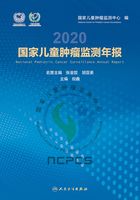
Preface
Children are the future of mankind and an important resource for sustainable social development, whose health bears directly on the development and future of a country. Governments around the world are working tirelessly to improve children’s mental and physical health and promote their overall development. However, as the pace of society fastens and mankind’s living environment constantly changes, cancer has become one of the major diseases threatening the lives and health of children and adolescents, and a leading cause of child disability and family poverty in China.
Under the guidance of the National Health Commission, the National Center for Children’s Health has given full play to its leading role in pediatrics to provide and secure the treatment of pediatric hematological diseases and cancers. In 2019, the National Center for Pediatric Cancer Surveillance has been established with the approval of the National Health Commission, aiming to carry out national pediatric cancer surveillance based in the National Center for Children’s Health (Beijing). By setting up a pediatric cancer surveillance system, it has laid a solid foundation for information mornitoring and whole-process management of pediatric cancer diagnosis and treatment. The success of this work bears great significance to pediatric cancer prevention and treatment, plays an active role in the standardization of follow-up treatment and whole-process management and in the development of research in relevant fields, and supports fine management by health administrators with a strong data basis.
National Pediatric Cancer Surveillance Annual Report is a research report on children’s cancer based on national surveillance data. As one of the landmark achievements of children’s cancer surveillance in China, it has milestone significance in promoting the development of epidemiology, clinical medicine and health economics of pediatric cancer.
Hopefully, the National Center for Pediatric Cancer Surveillance will continue to do a good job in case registration management and data collection and analysis, strengthen research on pediatric cancer, and further improve the surveillance system. It is also hoped that local health administrators and medical institutions will learn from the experience of advanced regions to optimize their resource allocation for pediatric cancer and adjust and improve relevant policies, so as to contribute more to children’s health in China and across the world.
Dr. Zhang Jinzhe
Academician, the Chinese Academy of Engineering
Professor, Beijing Children’s Hospital, Capital Medical University
December, 2020